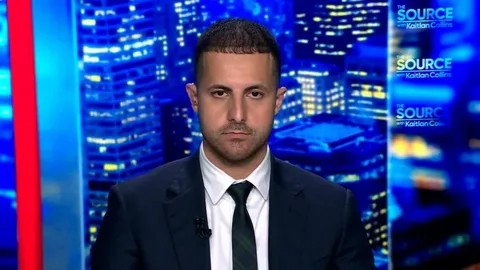In a significant display of dissent, a Palestinian American doctor left a meeting with President Joe Biden prematurely on Tuesday evening, highlighting the profound tensions and discontent within Arab, Palestinian, and Muslim American communities amid the ongoing Israel-Hamas conflict.
Dr. Thaer Ahmad, an emergency physician from Chicago who had recently traveled to Gaza, departed abruptly from the meeting, attended by Vice President Kamala Harris, national security adviser Jake Sullivan, and other officials alongside a small group of Muslim community leaders.
Ahmad’s decision to exit the meeting serves as a poignant reminder of the political challenges faced by President Biden, particularly within key segments of his coalition, including Arab and Muslim Americans, and progressive voters. The meeting, initially planned as an iftar dinner, was altered due to discomfort among participants over celebrating while Gaza faces dire humanitarian conditions, adding to the strained relationship between the administration and the Muslim American community.
Thaer Ahmad’s Testimony and Biden’s Response
Ahmad, who had been part of a medical delegation to Gaza, emphasized the dire situation he witnessed there, expressing disappointment over the lack of representation and respect for his community’s plight. Before leaving, he handed President Biden a letter from an eight-year-old girl in Gaza, pleading for protection from further Israeli military action.
While Biden acknowledged Ahmad’s decision to leave, he reiterated his commitment to securing a ceasefire and increasing humanitarian aid to Gaza. However, Ahmad stressed the urgency of tangible action, calling for stronger measures to protect aid workers and civilians in the region.
Following Ahmad’s departure, other attendees, including Dr. Nahreen Ahmed, an ICU physician from Philadelphia, expressed frustration with the meeting’s tone and outcome. Despite efforts to raise critical issues, including aid distribution and human rights violations, attendees felt that the session lacked substantive action and appeared more as a public relations gesture.
The White House’s handling of the conflict has drawn criticism, particularly from Muslim American communities and progressive voters. The decision to alter the iftar dinner plans underscores the sensitivity of the issue and the growing discontent among these groups. The political ramifications of the administration’s stance on the Israel-Hamas conflict are becoming increasingly evident, with implications for key battleground states and voter sentiment.
As the conflict persists and humanitarian concerns deepen, the Biden administration faces mounting pressure to address the root causes of the crisis and take decisive action to alleviate suffering in Gaza. The events surrounding the meeting underscore the complexities of navigating domestic and international politics in the midst of a protracted conflict with far-reaching consequences.






